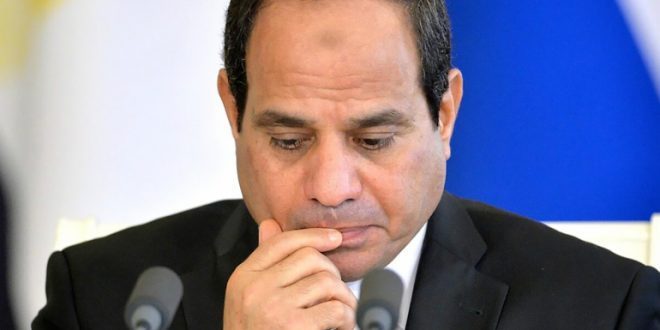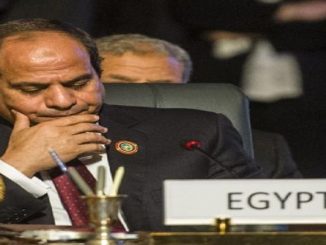
Draft legislation for comprehensive personal status laws in Egypt revealed the Sisi regime’s inability to maintain a religious and social balance.
“In February 2021, the government of Egypt’s cabinet put forth a comprehensive draft of the personal status law to the parliament. The proposal garnered massive backlash due to what was perceived as a peeling back of progress on women’s rights. Consequently, the bill was withdrawn, and President Abdel Fattah al-Sisi promised to issue a more balanced piece of legislation. Although the personal status law is unlikely to be implemented anytime soon, it serves as a reliable barometer for the regime’s interests”, said Nouran Ahmed, a researcher at Law & Society Research Unit, at The American University in Cairo, in an article on the Carnegie website. The article proceeded as follows:
Obvious existential threats to Sisi’s regime have waned, but escalating pressure regarding the personal status law could signal a threat to stability. This issue of stability drove the government to approve an official request to hold public gatherings. These gatherings were organized by women and feminist groups to protest a proposal in the draft law that restricts women’s right to initiate divorce “Khula’a” and to child custody. Although the protest was limited, it was timely and it captured the interest of the regime and the media. Sisi and some members of parliament acknowledged and addressed the demonstrations. Some voices close to the regime have said that a periphery of political and partisan activity should be allowed, following the elimination of the existential threat to the regime. In their opinion, family law’s distance from regular political matters should allow for an open discussion which will prove that the regime has passed the state of exception.
Sisi’s genuine keenness on family issues produced a lengthy agenda supported by legislation which includes the amendments to personal status law. Sisi clashed with the Sheikh Al-Azhar when he called for legislation that annuls verbal divorces in an attempt to lower Egypt’s divorce rate. Sisi’s regime continues to move toward austerity and envisions a more disciplined society with limited potential for dissent. According to the regime, divorce jeopardizes the state’s control over the family, contributes to social crises, and adds undue burdens to society such as child homelessness, youth involvement in extremist organizations, and nihilism among Egypt’s youth and adolescents.
The government has worked to extensively restructure the litigation system and advance a comprehensive bill to overcome legal loopholes concerning family disputes. Some members of the parliament and feminist organizations issued competing proposals which created pressure for the regime’s bill to be more comprehensive. This raised the bar for the regime and made it hard to retreat from the benchmark they set. Comprehensiveness translated into bloating the draft proposal with details from the default reference, Islamic Jurisprudence, which was a departure from the legacy of legal articulation.
The cabinet bill consolidates the various pieces of legislation and amendments that regulate the personal status affairs in Egypt and better supports the regime’s attitude toward legal codification. The purpose of this legal centralization is to control the judiciary by constraining judges’ discretionary authority and restricting any flexible interpretation deployed by judiciary staff. The Ministry of Justice has noticed a disparity in decrees issued by family courts and the intended implementation of the law. Litigants and their representatives are aware of this discrepancy and utilize these differences to decide in which courts to fill their cases.
The cabinet’s draft proposal provides insight into the post-2013 regime and the transformation of the state apparatus and its handling of various legal situations. Comparing personal status law with other legal issues, such as the economy, public administration, urban planning, and experiences with international organizations, puts the differences into the starkest light. Family law requires experts who are skilled in navigating traditional Sharia’ interpretations while maintaining a religious and social balance. During the Mubarak era, experts faced similar issues but were able to effectively navigate them, unlike the current regime’s cadres. The regime acknowledges this fact, and consequently, recruited several government sectors to help produce its bill. Different sectors of the state apparatus worked independently on their own proposal drafts, but the work of many agencies overlapped since they all exchanged their experts to prepare their proposals. According to the parliament’s chair of the legislative affairs committee, this overlapping led to the regime’s stumbling throughout the process.
The new personal status law proved to be problematic for the regime for several reasons. Though the regime presents itself as a moderate advocate of women’s rights, it advocates very conservative policies. Additionally, the inclination to codify all regulatory principles of family affairs will standardize and facilitate the enforcement of controversial religious rules. The draft legislation spelled out the condition of the patriarch’s approval for women’s marriage. This stipulation is currently implemented in marriage contracts in Egypt, even though it was never written in laws to avoid criticism. The rationale for this decision was to leave disputes to be solved informally or to be subject to the discretion of the judges. This rule represents the most moderate legal opinion, but the codification of this rule is still striking as it addresses rare cases. This article serves multiple interests of the conservative coalition who drafted the proposal. Among those goals is reinforcing the idea that marriage contracts are a religious matter and empowering families to defend their social status, in case of dispute, by protesting against cross-class marriage.
Although the regime claims to be the authority over family law, its new law failed to bring new ideas to the conversation on family law. The draft legislation was meant to preserve the family unit with little attention given to the rights of individuals, women or men. Despite its ultra-authoritarian disposition, the government of Egypt closely scrutinizes public social debates and responds to strong, albeit limited, social pressures. This was proved true when the government withdrew the personal status law proposal following heavy backlash and began assembling a new draft.



